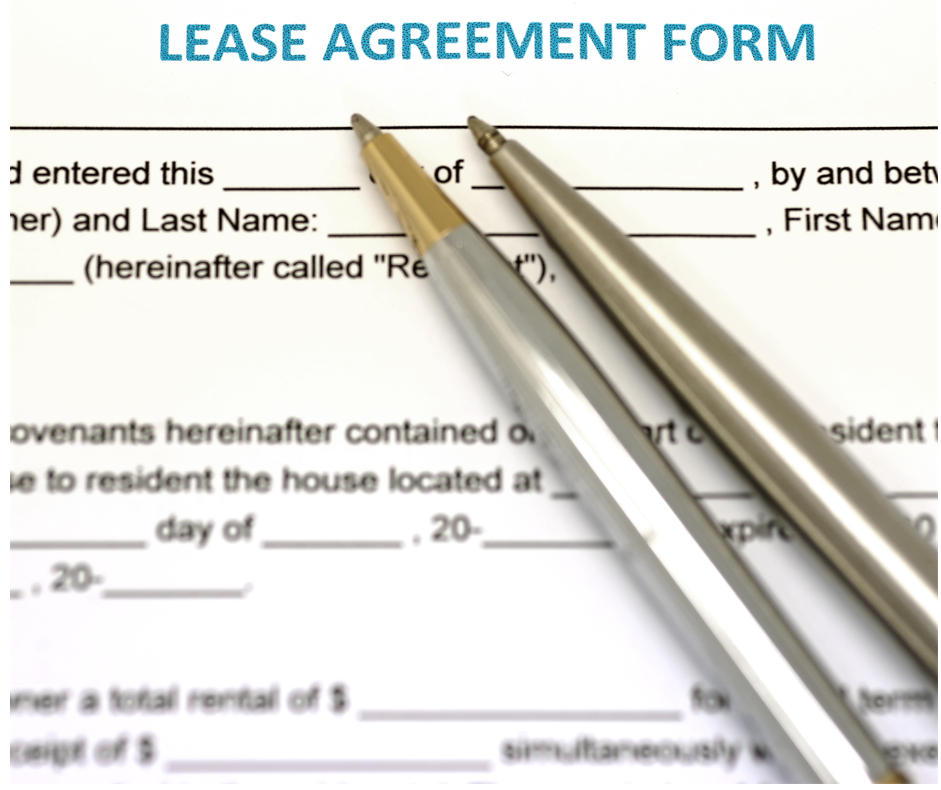
by John McCarthy Consulting Ltd. | Nov 15, 2021 | Blog, News
Recent blogs have dealt with some of the changes to the Ethical Standard for Auditors and to ISQC1 some important changes have occurred. We wrote on:
- This week we want to highlight two more important changes to Section 5 of the Ethical Standard dealing with certain Non-Audit Services which are banned from 15 July 2021. These changes apply to all audits, both private and listed entities. These changes came into effect from 15 July 2021. The words in bold are what’s new since the 2017 version
- Recruitment ban: Paragraphs 5.94 and 5.95 now state:
5.94 ‘The firm shall not provide recruitment services to an entity relevant to an engagement, that would involve the firm taking responsibility for, or advising on the appointment of any director or employee of the entity, or a significant affiliate of such an entity, where the firm is undertaking an engagement.’
5.95 ‘The firm shall not provide advice on the remuneration package or the measurement criteria on which the remuneration is calculated, for any director or employee of the entity, or a significant affiliate of an entity relevant to an engagement.’
Prior to this ban, recruitment could have been carried out in certain limited circumstances and within certain safeguards being implemented.
- Internal audit ban: Paragraph 5.48 now states ‘The firm shall not provide internal audit services to an entity relevant to an engagement or a significant affiliate of such an entity, where the firm is undertaking an engagement’.
Prior to this ban being introduced, the 2017 version of the Ethical Standard for Auditors, internal audit services were permitted in certain circumstances, while other internal audit services were not. Now the ban is across the board.
Prior to this ban being introduced, the 2017 version of the Ethical Standard for Auditors, internal audit services were permitted in certain circumstances, while other internal audit services were not. Now the ban is across the board.
For more details and implementation support on these changes, please refer to our just published Audit Quality Control Manual (implementing the latest Irish Audit & Accounting Supervisory Authority standards including ISQC1 on audit quality control). View the Table of Contents here.
We also have an up to date Anti-Money Laundering Procedures Manual (September 2021) – View the Table of Contents here.

by John McCarthy Consulting Ltd. | Nov 8, 2021 | Blog, News
As we mentioned in last week’s blog, we are writing a series of blogs on the recent changes to the Ethical Standard for Auditors that have been become effective since 15 July 2021 and some changes to the ISQC1 ‘Quality Control for Firms that Perform Audits and Reviews of Financial Statements, and other Assurance and Related Services Engagements’.
IES 8
There has also been a change in the scope and emphasis of the International Education Standard 8 (IES 8), which focuses on the reflection and planning of Audit Partner’s training requirements, under 14 competency headings. IES 8 is issued by the International Accounting Education Standards Board (IAESB) sets out the competencies that you are expected to have if you are a responsible individual (RI), which the standard refers to as an ‘engagement partner’. The 14 competencies are too numerous to mention here – but they can be accessed at this link.
In brief terms the Audit Partner must:
- Reflect on what your CPD needs are
- Act – carry out the CPD activity or activities you have planned
- Impact – subsequently evaluate whether the plan was achieved and adjust if necessary
- Declare – be able to demonstrate with appropriate records that the required CPD has been fulfilled.
The ICAEW actually calls this the ‘RAID’ acronym – to make it easier to remember.
Reporting Breaches
From 15 July 2021 the Ethical Standard for Auditors (paragraph 1.21) requires audit firms to file annual reports of breaches of the Ethical Standard on a calendar year basis:
Where no breaches have occurred, ‘Nil’ reports are not necessary. The first reports will be due for the period 15/7/2021 to 31 December 2021. At the time of going to press, ACCA and Chartered Accountants Ireland have issued guidance on the correct approach and format of the reports.
An example of such a reportable breach would be where an audit firm is obliged to have an Engagement Quality Control Review (EQCR or hot file review) carried out, and did not do so, this would be a reportable breach.
For more details and implementation support on these changes, please refer to our just published Audit Quality Control Manual (implementing the latest Irish Audit & Accounting Supervisory Authority standards including ISQC1 on audit quality control). View the Table of Contents here.
We also have an up to date Anti-Money Laundering Procedures Manual (September 2021) – View the Table of Contents here.

by John McCarthy Consulting Ltd. | Nov 1, 2021 | Blog, News
Recent changes to the Ethical Standard for Auditors in Ireland mean that there is much less chance of auditing being a dull profession! The changes are the first to arise since the previous standard was issued in April 2017 and, following representations from the professional bodies, were postponed by over a year to allow for the impact of Covid-19.
Over the course of the next few weeks, we will be writing a number of blogs on the changes to the Ethical Standard for Auditors that have become effective since 15 July 2021 and as time moves on, implementation and the implications of these changes becomes more and more important , especially where they are not fully appreciated at the outset.
The first of these changes that we want to speak about is the change in emphasis of the definition of the ‘Reasonable and Informed Third Party’ (‘RITP’) which is a test of auditor independence.
This test applies especially at the planning stage but also, all throughout the audit, when the auditor is considering the independence of the audit firm and the audit team. Ethical Standard 1 now requires consideration of independence matters to be evaluated by reference to the perspective of an objective ‘RITP’.
The new definition of the ‘RITP’ refers to third party stakeholders which include, for example, the Revenue Commissioners, suppliers, customers, employees, management and shareholders of the audited entity. The previous definition referred to the ‘RITP’ as another audit practitioner. The change in emphasis could become a little more rigorous and challenging in certain circumstances.
There has also been a change in the scope and emphasis of the International Education Standard 8 (IES 8), which focuses on the reflection and planning of Audit Partner’s training requirements, but more on that next week.
For more details and implementation support on these changes, please refer to our just published Audit Quality Control Manual (implementing the latest Irish Audit & Accounting Supervisory Authority standards including ISQC1 on audit quality control). View the Table of Contents here.
We also have an up to date Anti-Money Laundering Procedures Manual (September 2021) – View the Table of Contents here.

by John McCarthy Consulting Ltd. | Oct 22, 2021 | Blog, News
What’s the difference in treatment of investment property between FRS 105 and FRS 102?
Too many accountants rely on the computer software to produce the correct result, which can go badly wrong. You can’t beat reading the standards themselves. In this case, the March 2018 version (as amended) of FRS 105 and more particularly Section 12 of FRS 105 which deals with Property, plant and equipment and Investment Property.
Investment property assets are normally carried at revaluation under Irish GAAP i.e. FRS 102, but it’s dangerous to assume that FRS 105 allows the same treatment. For the purposes of this blog, I am ignoring the FRS 102 options for investment property, which allow for cost/fair value models, in certain circumstances. Instead I want to focus on the fact that FRS 105 removes most FRS 102 options.
Where the company owning the property is a ‘micro-entity’ (as defined in the Companies Act, 2014 with turnover €700k, gross assets €350k, and less than 10 employees), it is not allowed apply the alternative accounting rules/fair value accounting rules under FRS 105, because the Companies Act, 2014 does not permit the use of these options.
Therefore, investment property must be carried at cost under FRS 105.12.3 and the knock-on effect of this is that the investment property must also be depreciated under FRS 105.12.15 because that is a requirement of the cost model.
The bottom line is that if you have ‘small’ (as defined in the Companies Act, 2014) company clients who wish to report investment property assets at revaluation or at fair value, then they must adopt FRS 102 Section 1A (as amended) or else the full version of FRS 102 (March 2018) (as amended).
For more blogs please visit this link and for our publications and manuals and services click here.

by John McCarthy Consulting Ltd. | Sep 16, 2021 | Blog, News
As far as accountancy firms go, there is a requirement for each firm to prepare an anti-money laundering (AML) written risk assessment (known as the firm-wide or business risk assessment) examining the business/practice in five key areas (more on this below). The legislation that brought this into place is section 30A of the Criminal Justice (Money Laundering and Terrorist Financing) (Amendment) Act, 2018, which became effective on 26 November 2018. The various professional bodies are examining these risk assessments in their recent practice inspections.
The risk assessment must be kept up to date but there is little clarification in the legislation about ‘what up to date’ means. If your practice has essentially not changed in structure/number of offices or the services it offers since you prepared your first risk assessment in 2018, now is a good time to give it a brief refresh. If there have been more fundamental changes, including new Partners/services, then a more detailed refresh is required.
More guidance on this topic has been prepared by the Consultative Committee of Accountancy Bodies–Ireland (CCAB-I) and is available here as CAI Technical Release 01/2019. The five key areas that must receive attention in the document are:
- clients – locally based are generally less risky than overseas clients;
- the products and services provided – bookkeeping is generally less risky than liquidation work;
- the countries the clients operate in – clients based in sanctioned territories, or Irish clients doing business with such countries are usually prone to more money laundering (ML) risk;
- the transactions the firm is involved in – decision making on behalf of clients is usually a higher trigger point for risk; and
- the delivery channels – with remote delivery seen as more prone to ML risk.
There will sometimes be overlap between these risk factors, and this is explained in more detail in the guidance and in the template available below.
A template to help you prepare the Firm-Wide Business Risk Assessment is available here for €60+VAT for immediate download in word format.
For more blogs please visit this link and for our publications and manuals and services click here.

by John McCarthy Consulting Ltd. | Sep 13, 2021 | Blog, News
In response to the continuing impact of Covid 19 the Financial Reporting Council (FRC) has extended the accounting requirements for special conditions for reporting rent and lease concessions/reductions under FRS 102 and 105 well into next year. The change will enable businesses to present a clearer picture of their performance in year-end accounts.
Many entities have struggled to pay rent and meet lease payment commitments for their rental properties. This has led to negotiations between tenants and landlords in the form of rent concessions (deductions in rent or waivers) or rent deferrals (an agreement to pay rent or lease payments until a later date).
According to the FRC, the prolonged duration of the pandemic has made it necessary to extend the existing reporting time for a further 12 months to 30 June 2022 to help ensure consistency and accuracy in financial reporting and in such a way that best reflects their substance. The disclosure of the reality of rent concessions for businesses, will achieve a true and fair presentation by recognising the reduction in full for the period concerned.
The concession means that if a business doesn’t have to pay rent for a given month, no expense will be recognised for that month. Prior to the advent of Covid-19, a rent reduction would have been recognised over the life of the lease.
The main conditions of the proposals contained in FRED 78 are:
- Entities must recognise changes that reduce lease payments in the period to 30 June 2022, and meet the other specified conditions, on a systematic basis over the periods that the change is intended to compensate, rather than spreading the impact of the change, over future lease periods.
- The amendments are effective for accounting periods beginning on or after 1 January 2021, with earlier application permitted.
The net impact will be that if the business doesn’t have to pay rent for a given month, no expense will be recognised for that month thus allowing companies to report a more accurate picture of their cash management, performance, and rent-related support measures, reflecting the businesses’ economic reality.
There are rumours that the FRC may seek to extend the reporting period again, at least until the end of the pandemic, especially if there are further lockdowns, during winter, potentially leaving the retail sector in the same position as before.
For more blogs please visit this link and for our publications and manuals and services click here.










